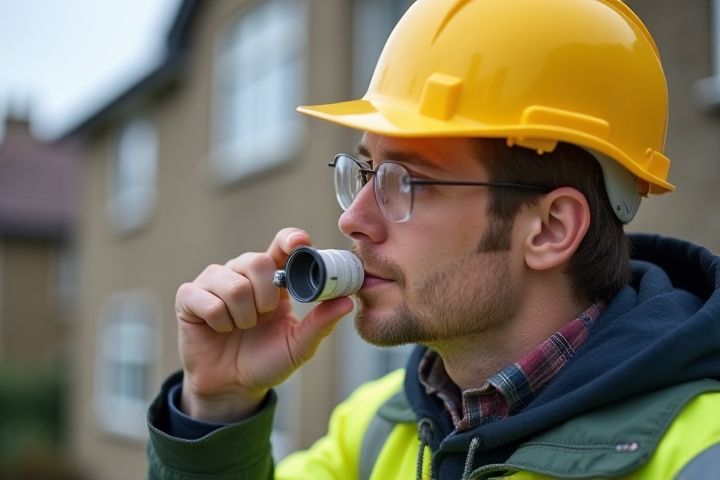
A qualified home inspector conducts a thorough examination of a house before you finalize your purchase. They assess critical components such as the roof, plumbing, electrical systems, and foundation for any potential issues. This inspection helps identify necessary repairs or safety hazards, giving you valuable insights into the property's condition. Often, real estate agents may recommend reputable inspectors with strong credentials and experience. Once the inspection is complete, you'll receive a detailed report that can inform your decision-making process and negotiation strategy.
Who Inspects A House Before Purchase
Home Inspector
A home inspector conducts a thorough examination of a property's condition prior to your purchase, typically lasting between two to four hours. They assess critical elements such as the roof, plumbing, electrical systems, and foundation, often identifying potential issues that could affect the home's value. A comprehensive report, often containing detailed photographs and descriptions, is provided within 24 hours of the inspection, enabling you to make an informed decision. Home inspections can cost between $300 and $500, depending on the property's size and location, making them a valuable investment in your prospective home.
Structural Engineer
A structural engineer plays a crucial role in assessing a house before purchase. They evaluate the integrity of the foundation, walls, and roof, ensuring that the structure meets safety standards and regulations. With extensive knowledge of building codes and materials, structural engineers can identify potential issues, such as cracks or settlement problems, that may not be visible during a standard home inspection. Hiring a structural engineer can cost between $300 to $800, but their expertise can save you from costly repairs in the long run.
Pest Inspector
A Pest Inspector plays a crucial role in the home-buying process by evaluating the property for signs of infestations, such as termites, rodents, and other pests. Typically, this inspection occurs before the purchase agreement is finalized, ensuring you have a comprehensive understanding of potential issues that could affect your investment. An average inspection can range from $75 to $150, depending on the property's size and location. Acquiring a professional pest inspection can save you significant repair costs down the line, as early detection of pests can prevent extensive damage.
Roof Inspector
A roof inspector plays a crucial role in assessing a property's roof condition before purchase. This expert evaluates shingles, flashings, and gutters for signs of wear, damage, or potential leaks. A thorough inspection can uncover issues that may require costly repairs, with average roof replacement costs ranging from $5,000 to $15,000, depending on materials and size. You should consider hiring a certified roof inspector to ensure a comprehensive evaluation that can protect your investment.
HVAC Specialist
An HVAC specialist plays a crucial role in evaluating the heating, ventilation, and air conditioning systems of a house before purchase. They thoroughly assess system efficiency, performance, and potential issues that could lead to costly repairs. This expert examines ductwork, insulation, and air quality, ensuring that your future home meets energy efficiency standards and is safe for occupancy. Hiring a qualified HVAC specialist not only provides peace of mind but also helps you make an informed investment decision.
Plumbing Inspector
A plumbing inspector assesses the integrity and functionality of a home's plumbing system before purchase. This professional examines pipes, fixtures, and drainage systems to ensure compliance with local codes and regulations. Typically, plumbing inspectors evaluate potential issues such as leaks, water pressure, and proper installation of appliances that could cost homeowners thousands in repairs. Engaging a certified plumbing inspector can provide you with valuable insights that enhance your decision-making during the home buying process.
Electrical Inspector
An electrical inspector plays a crucial role in the home buying process by assessing the safety and functionality of the electrical systems within a property. This expert examines wiring, outlets, panels, and grounding systems to ensure compliance with local building codes and safety standards. Typically, the inspection takes 1 to 2 hours, providing you with a comprehensive report that highlights any potential hazards or necessary repairs. By conducting this evaluation, an electrical inspector helps protect your investment and ensures the home will meet your electrical needs safely.
Radon Inspector
A radon inspector plays a crucial role in the home-buying process by assessing indoor air quality for radon gas, a colorless, odorless radioactive substance linked to lung cancer. This professional employs specialized devices to measure radon levels, typically reporting results in picocuries per liter (pCi/L); levels above 4 pCi/L are considered hazardous. You should ensure that the inspector is certified and follows state guidelines to provide accurate and trustworthy assessments. Investing in a radon inspection can lead to significant health benefits, as timely remediation can effectively decrease elevated radon levels in your prospective home.
Mold Inspector
A mold inspector plays a crucial role in evaluating a property before purchase, particularly if you have concerns about indoor air quality and potential health risks. They utilize specialized tools and techniques to detect hidden mold growth, often identifying problem areas that may not be visible to the naked eye. According to the Environmental Protection Agency (EPA), mold can grow in as little as 24 to 48 hours under the right conditions, making an inspection imperative, especially in humid climates. By investing in a mold inspection, you protect your investment and ensure a healthier living environment, potentially saving thousands in future remediation costs.
Chimney Inspector
A chimney inspector plays a crucial role in the home-buying process, ensuring the safety and functionality of your fireplace and flue system. They assess for blockages, structural integrity, and any signs of damage or deterioration, which can cost homeowners an average of $2,000 to $10,000 to repair if left unaddressed. Inspections typically include checking for creosote buildup, assessing mortar joints, and inspecting liners, which can affect your home's overall safety. By hiring a certified chimney inspector before purchase, you gain peace of mind and protect your investment from potential hazards.
